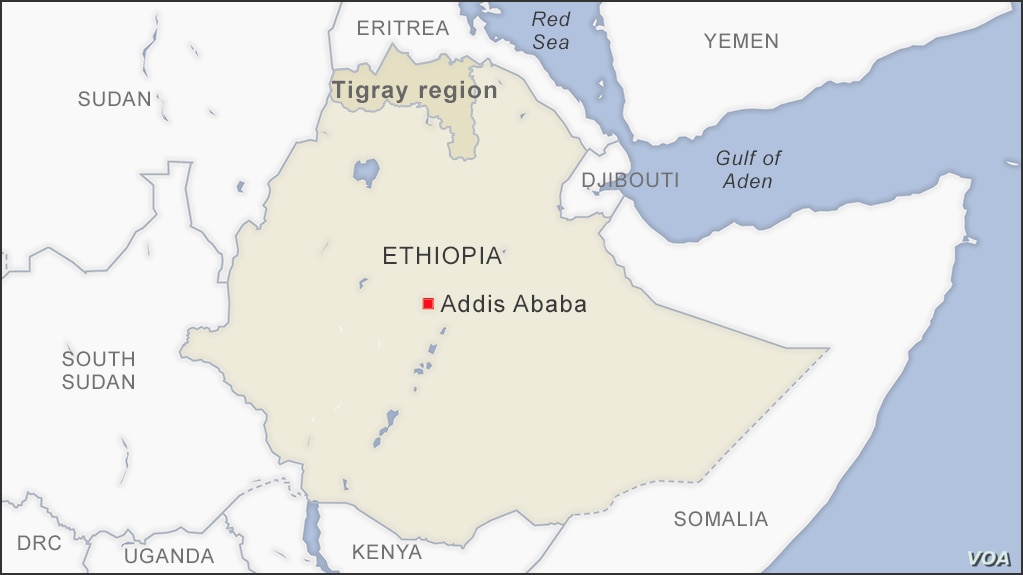More questions than answers on the way forward for Tigray. But hope is not a good basis for strategic planning and wishing that the problem would go away is pointless. In such a context, results cannot be bought – rather grown over time. But the humanitarian clock is ticking, somewhat like a time bomb.
With the Tigray Defence Force (TDF) apparently in control of much of Tigray, including Mekelle, the facts on the ground – and therefore the assumptions which underpin the international engagement in the region – have changed.
Based on a reading of the past, TDF were not provoked into a civil war culminating in the taking of Mekelle. It will have been a planned and deliberate act; and their intention will be to become the de facto administration for the foreseeable future. They probably have the capability to repel – if not defeat – the Ethiopian National Defence Force (ENDF) and the Eritrean Defence Force (EDF). For them, this will include pushing into both Eritrea and the rest of Ethiopia if necessary. They will be fighting a guerrilla campaign (in which they are highly experienced) on home ground (an advantage) with the support of the population (another advantage); and they will be seeking to use hearts and minds as much as military means. They no doubt plan to be in place for a while. They will be authoritarian (and unbending but not unreasonable). They may not be kind to people or populations who they consider to have collaborated with Ethiopia since the civil war started.
There is no love lost between Eritrea and the TDF. But the Tigrayans have been cultivating links with the Eritrean opposition (in Sudan) for some time now. TDF is, therefore, the fist inside the glove of the Eritrean opposition. Together with Sudan (a force behind the scenes in this respect) the TDF and the Eritrean opposition could pose a threat of regime change for Asmara.
Clearly there is also no love lost between the TDF and Ethiopia. But unlike 1991, the TDF will probably be content to hold Tigray; and will raise the prospect of secession from the Federal state under the Constitution. Although this route could put “normalisation” of relations on the table – and quite quickly –Ethiopia is unlikely to give in very soon. It will try to strangle Tigray – as the appalled but seemingly impotent international community watches on. In this respect, regime change in Eritrea (which would give Tigray a friend with a coastline and a container port) is a more likely immediate focus of the TDF’s attention.
The TDF are not, in fact, a bunch of ideologues hiding in the mountains. They understand the outside world well. They will be working on an assumption that instability and tension in the rest of Ethiopia will distract Addis Ababa and dilute their focus. They will also assume that Amharas will turn not on Tigray but on Addis Ababa; and in parallel, the TDF will probably be seeking an informal alliance with Oromo opposition groups.
All this brings in Sudan. Khartoum is very angry about what they see as Ethiopia’s unilateral behaviour over the GERD. There are signs that Sudan has been supporting TDF with arms and logistics. And in the future, it may become the land corridor to the region. This feels like a return to the early eighties – a decade when the TPLF were at their most effective.
More broadly, the region is uncertain. There is – and will be – more spill over from the Sahel; Somalia is far from stable; South Sudan is an ongoing mess. There is a lot of complexity to handle. It will be interesting to see how the African Union responds. They have been relatively quiet over Ethiopia’s behaviour in Tigray, but their own position on coups will force them to condemn the TDF. This will attract a lot of – probably unreasonable – criticism to it and will prevent it (along with Eritrea’s antipathy to it) from being a useful actor. There is still a chance that IGAD could play a useful role. They are weak and often ineffectual, but having been engaged in unravelling some of the ball of string that is the Horn in recent decades, they may still have the credibility to at least offer good offices.
Donors will be torn. Ethiopia is a central plank in their ambitions for stability and security in the Horn of Africa. The TDF have probably just landed a rock in a rather muddy puddle and everyone will be trying to work out what to do. Donors will not want to upset Ethiopia; but they will be equally uneasy about being thrust into a default alliance with Eritrea. (So, the TDF will see any success they can have against Asmara as a way of splitting an international coalition which they regard as being supportive of Ethiopia.) Donors will also have a sneaking sympathy for Sudan which has made significant advances in very recent years. Although not yet the case, there are prospects of an anti-Eritrea, pro-Sudan alliance which sees the TDF as a good thing – especially if they manage to instil discipline in Tigray. Again, very eighties.
More questions than answers on the way forward for Tigray. But hope is not a good basis for strategic planning and wishing that the problem would go away is pointless. In such a context, results cannot be bought – rather grown over time. But the humanitarian clock is ticking, somewhat like a time bomb.


Leave A Comment